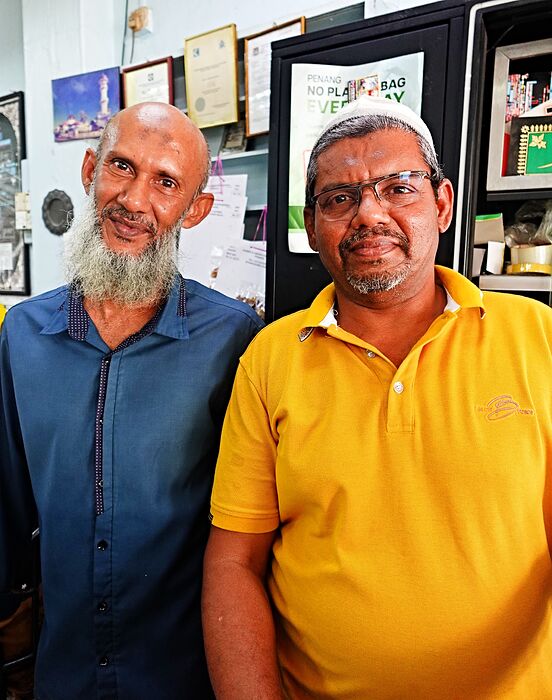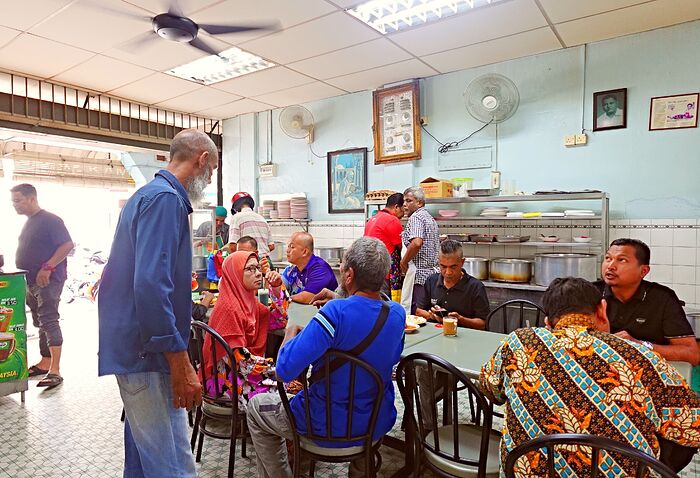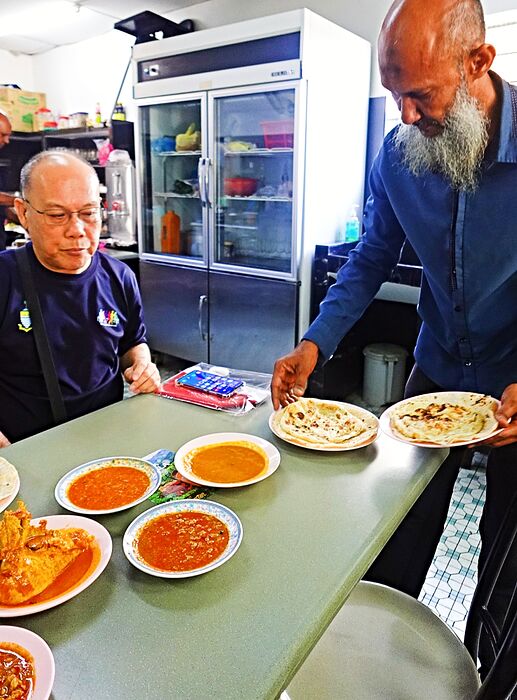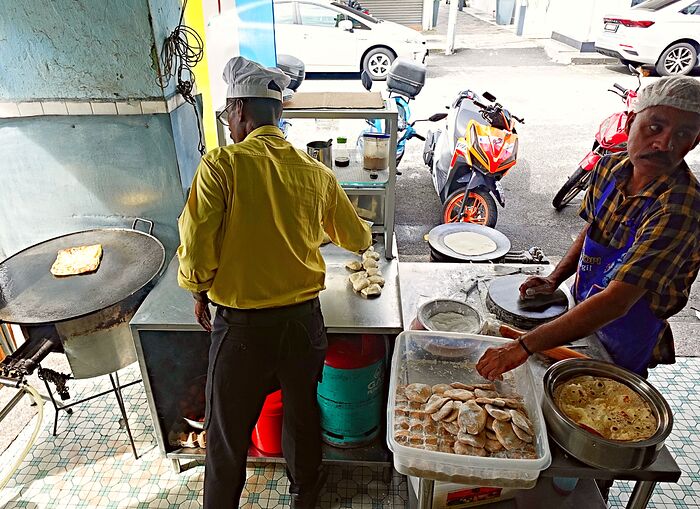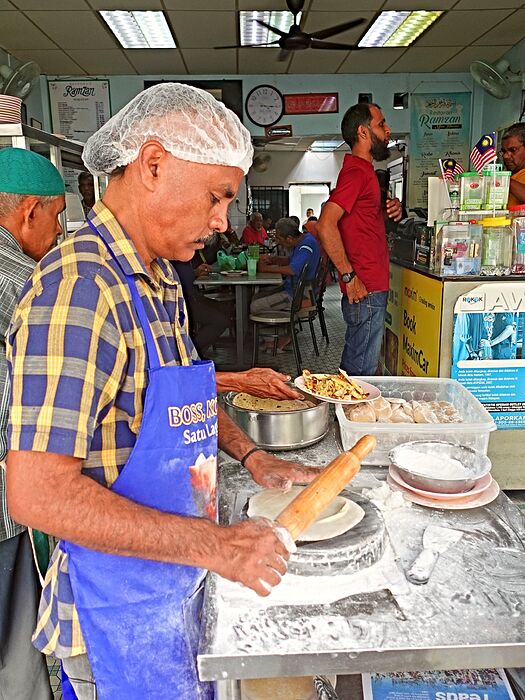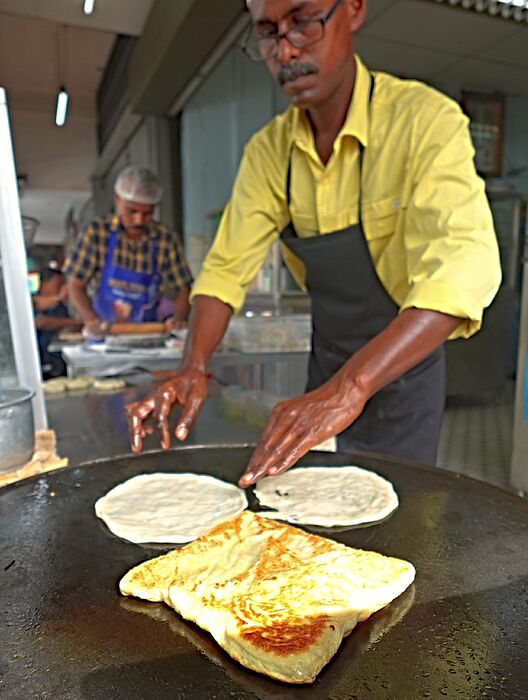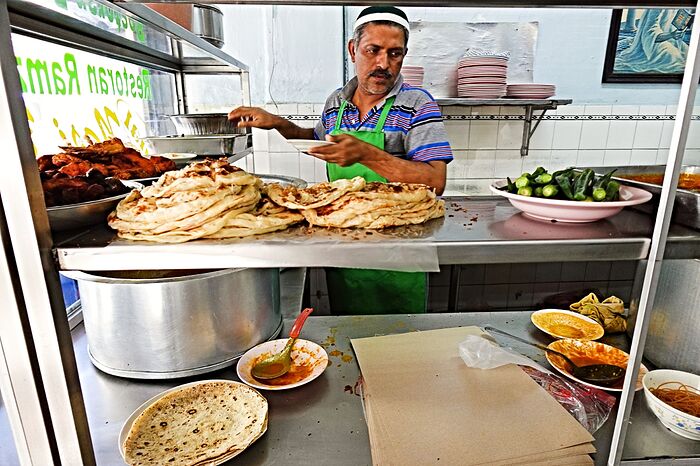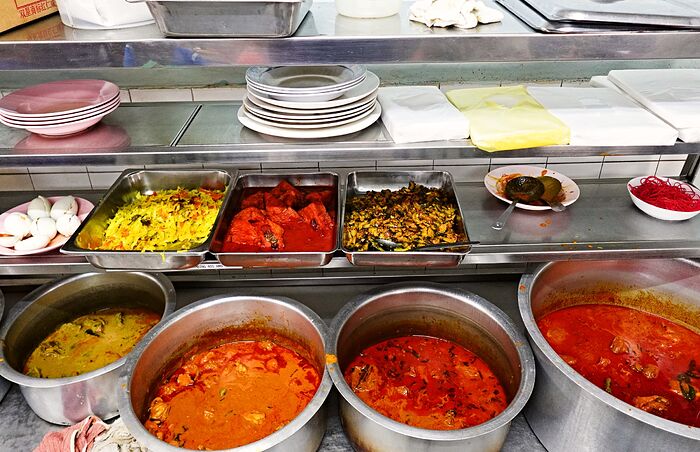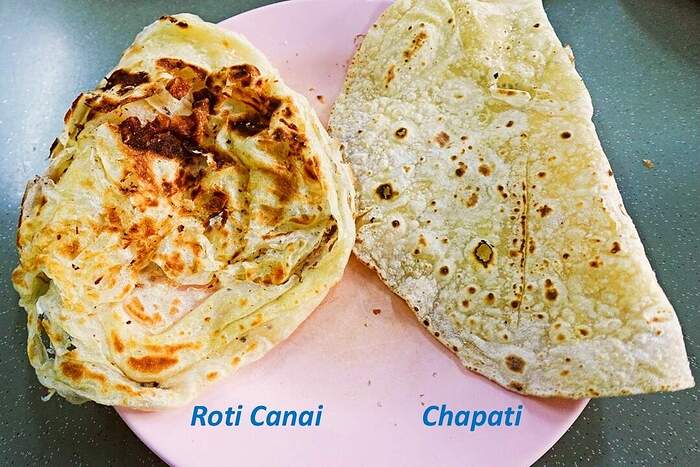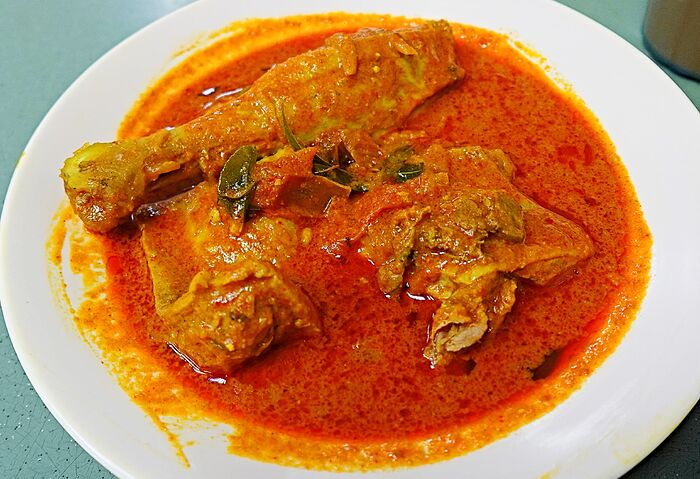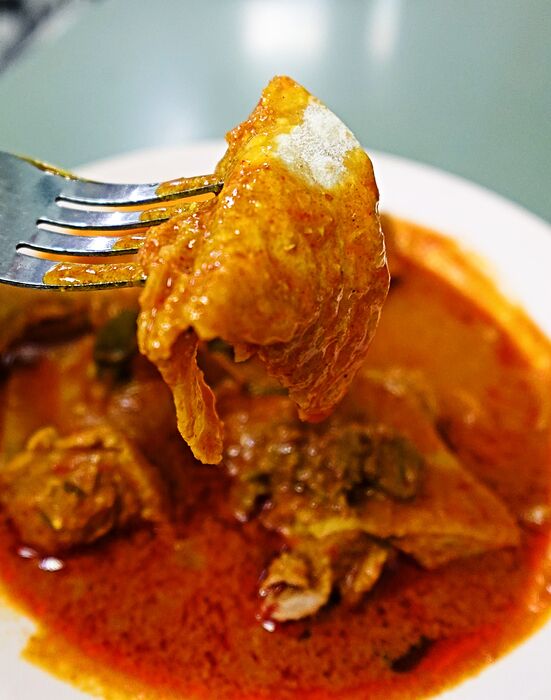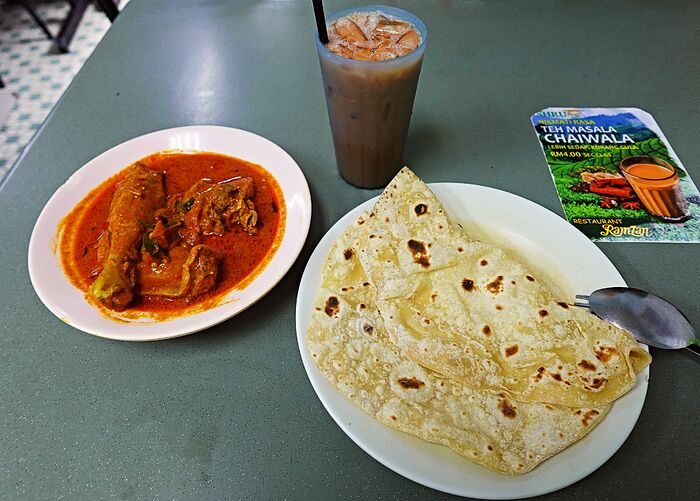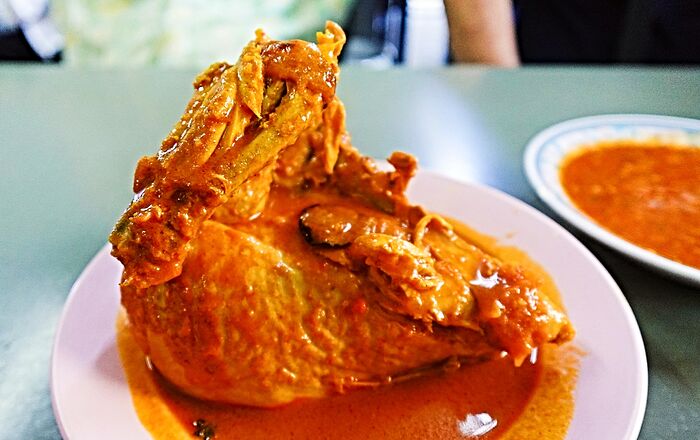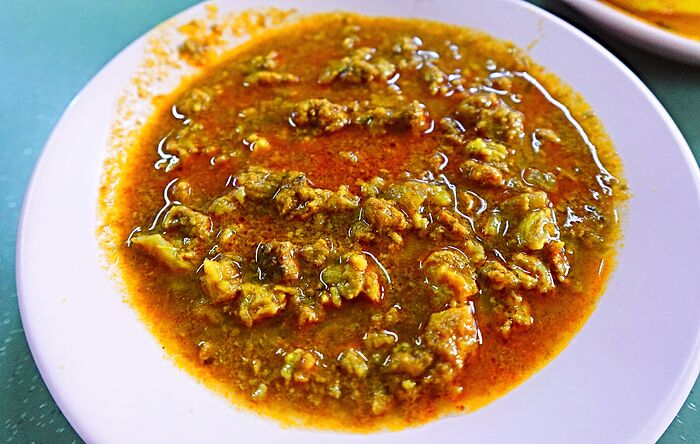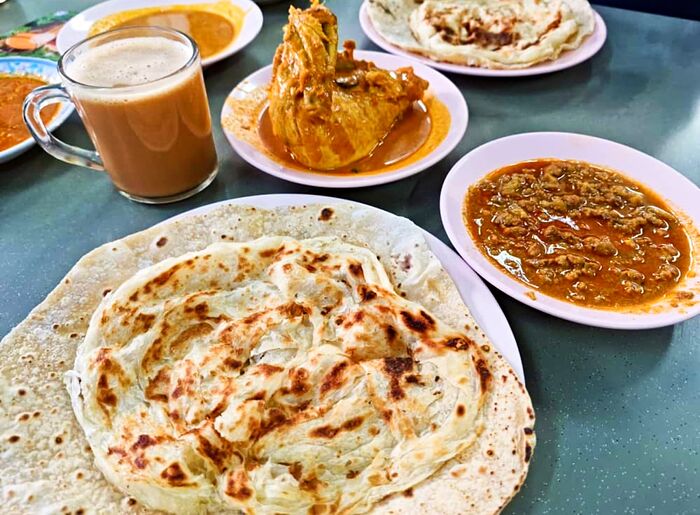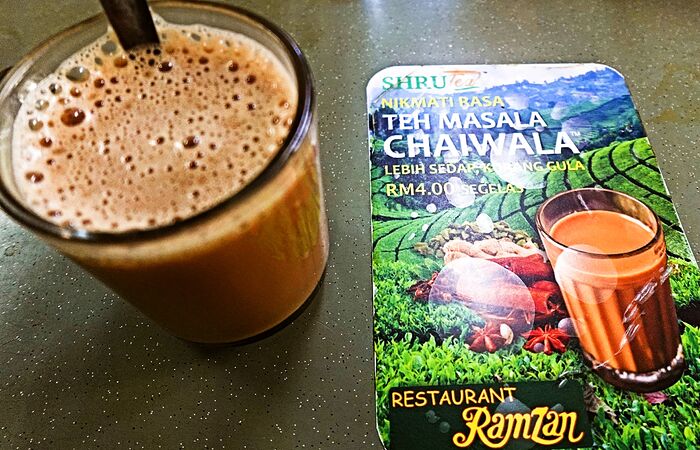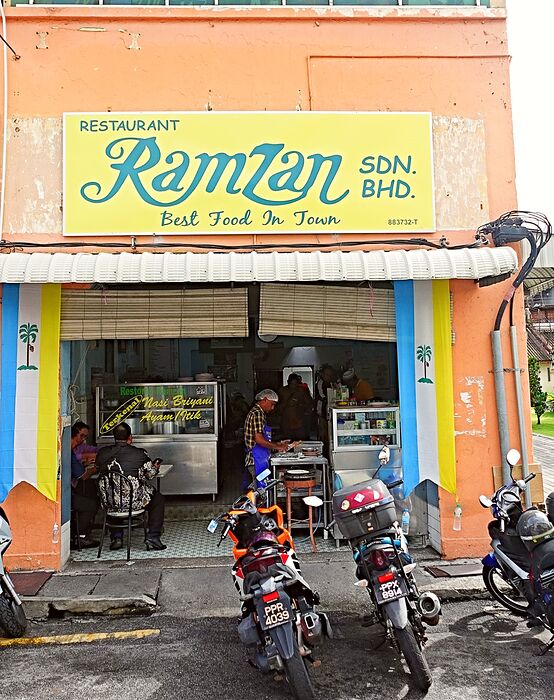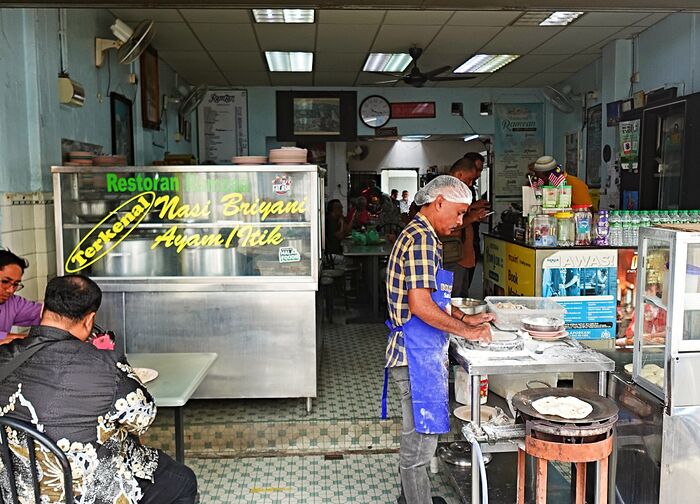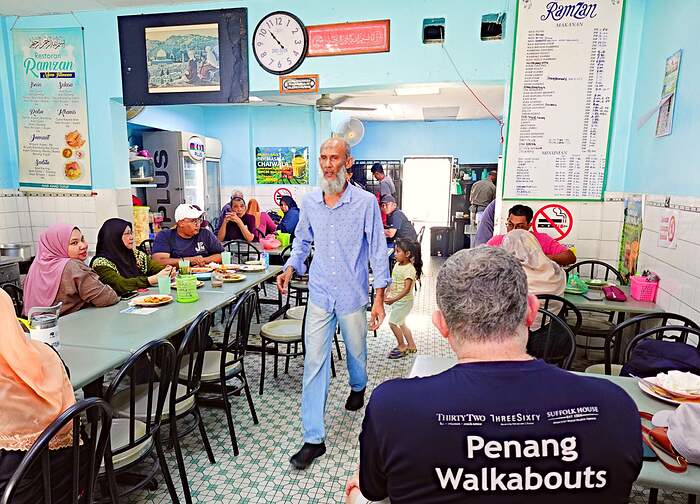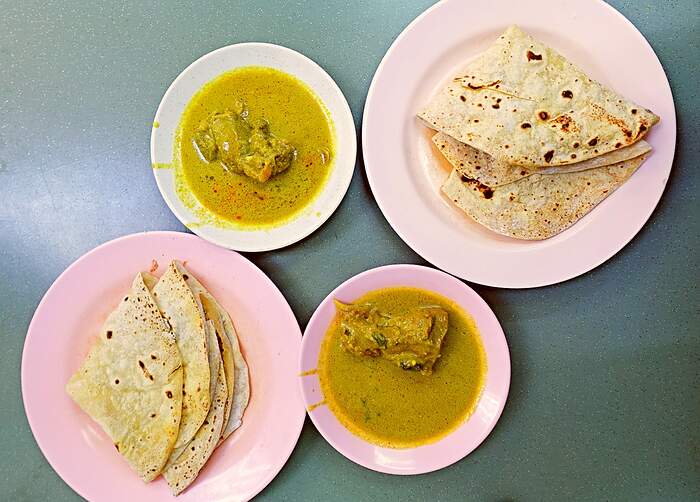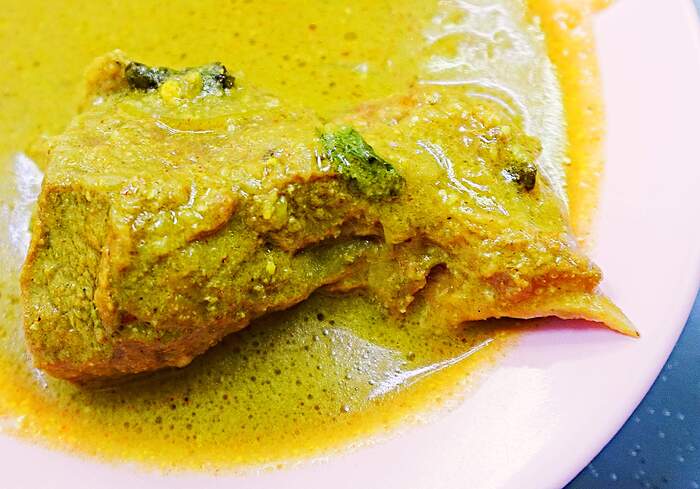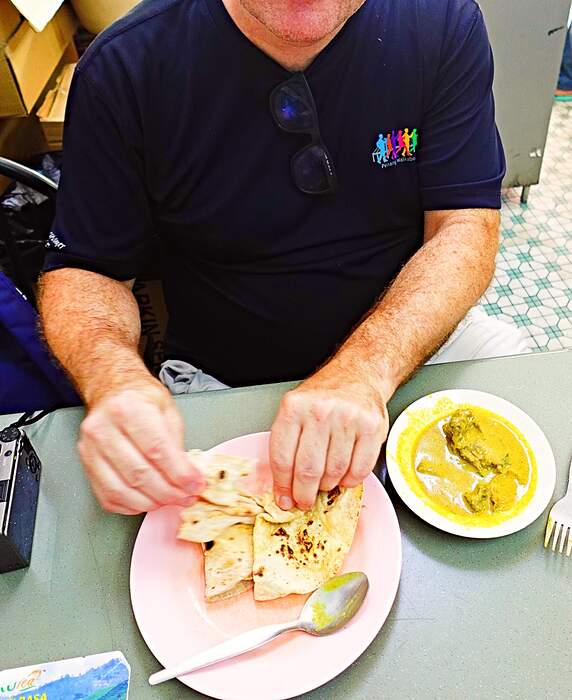Ramzan was established in 1948 by two Indian-Muslim restaurateur-brothers, Mohamed Ibrahim Pakir Mohamed and Mohamed Rawther, mainly to cater to the Indian port workers at Weld Quay, bordering Little India.
Their father, Mohdeen Packer, had emigrated to Penang as a young man before World War II from Adirampattinam, a small Tamil-Muslim town in the Thanjavur district on the southern coast of Tamil Nadu. Hadhrami traders from Yemen has been visiting it for over a thousand years and, as the Hadhramis made up the majority of Arab traders and settlers in Malaya and Singapore, Tamil-Muslim traders from Adirampattinam had also followed them to Penang, where they came into contact with other Tamil-Muslim groups from as far afield as Ramanathapuram (who came to dominate the nasi kandar trade in Penang), Tenkasi (who popularised mamak mee goreng) and Kadayanallur (who dominated the spice trade in 19th-century Chowrasta Market, Penang’s oldest market).
Today, Ramzan still remains within the family, run by Mohamed Rawther’s two sons, Naina Mohamed (who mans the cash counter) and Shamsul Anuar (who helps his waiters serve a steady stream of customers). Both are better known by their customers as “Mamu”, an honorific term (meaning “uncle”) used by Indian-Muslims in Penang to address an older person.
The tall, gangly Shamsul Anuar is easily recognizable by his white flowing beard. All smiles and very friendly - he seems to be everywhere!
Ramzan operates 6 days in a week (Monday to Saturday) from 6.30am onwards, servings its popular griddle-cooked flatbreads: greasy, crisp parathas (Malay: roti canai) and pillowy-soft chapatis:
Freshly-made chapatis - rolled and tossed onto the griddle to cook, then served instantaneously.
Likewise, the popular roti canai.
The ever-busy serving counter, with pre-cooked curries, which one can order from:
Whilst roti canai and chapati are served from 6.30am, steamed white rice and biryani rice are available from 8.30am. Amongst their plethora of curries on offer are quail (Malay: burung puyuh) - a fairly recent innovation as, in the old days, curried pigeons (Malay: burung merpati) were served instead. On Fridays (the Muslim Sabbath), curried lamb shank and free-range (“kampung”) chickens are added onto their range of offerings.
Ramzan’s claim-to-fame is undoubtedly their unique duck curry - utterly aromatic, and deep-flavored.
My ultimate “Happy Meal” - duck curry with freshly-cooked warm chapati:
The popular curried chicken - very aromatic and strong-flavored. Indian curries use dry spices like cardamom, cloves, fenugreek, cumin, coriander and dried chili powder, giving their gravies a long-lasting smell, and quite unlike Thai or Malay curries which use wet spices, e.g. fresh red chilis, fresh turmeric root, fresh galangal, fresh ginger root, coconut milk, fresh lemongrass, etc.
Mutton kheema - curried, minced mutton. This dish has a dominant cardamom, cumin & coriander scent.
A rather big breakfast to start the day with.
We finished off with some spiced masala milk tea.
Into its eighth decade and still going strong.
Address details
Ramzan
48, Lebuh Ah Quee (Ah Quee Street), 10200 George Town, Penang, Malaysia
Tel: +604-261 4967
Opening hours: 6.30am to 6pm, Mon to Sat. Closed on Sundays.

